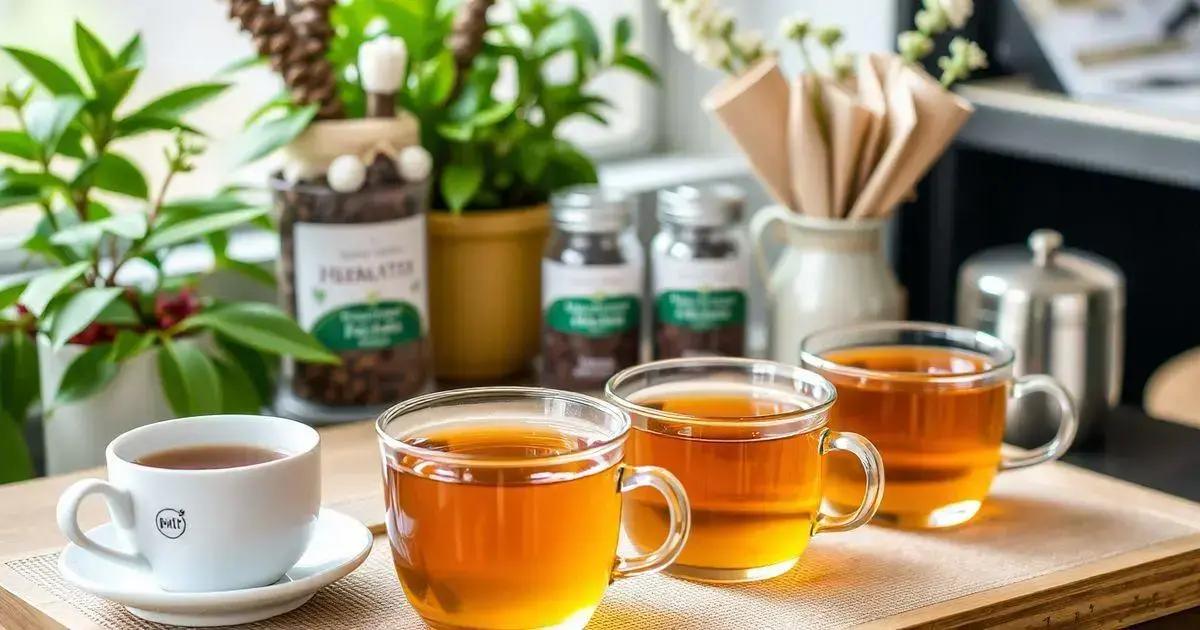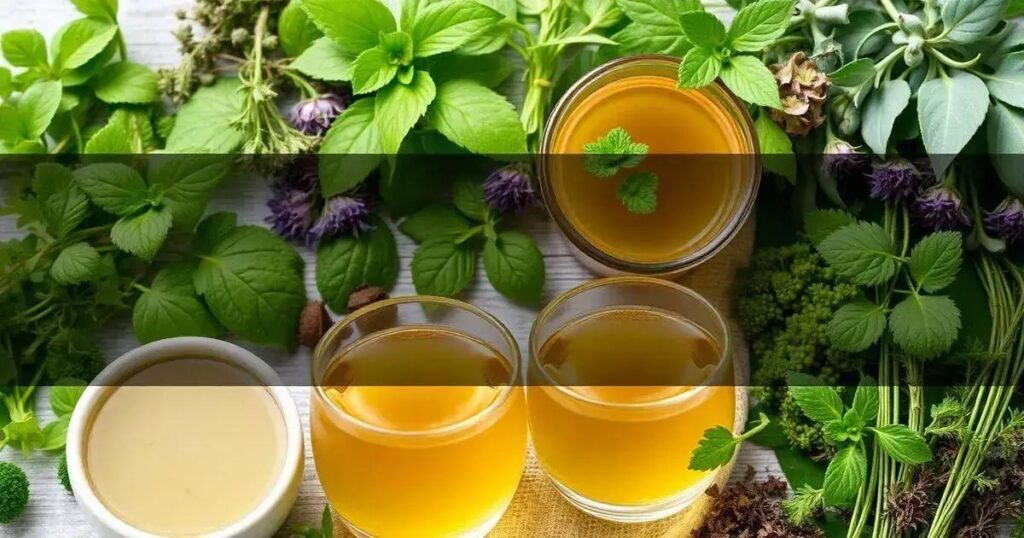Herbal teas, such as dandelion, nettle, and ginger, play a significant role in supporting kidney health by promoting detoxification, providing anti-inflammatory benefits, and being rich in antioxidants. Incorporating these teas into your daily routine can enhance hydration and overall well-being.
Kidneys play a vital role in our overall health by filtering waste and excess fluids. To support kidney function, many are turning to natural remedies. Herbal teas are not only refreshing but also known for their health benefits including detoxification and hydration. In this article, we explore the role of herbal teas in supporting kidney function, examining specific herbs and their effects, and how to incorporate them into your daily life.
Understanding Kidney Health and Herbal Teas

Kidney health is crucial for overall well-being. The kidneys filter waste and excess fluids from the blood, balancing electrolytes and regulating blood pressure. When kidneys function well, the body maintains a healthy balance of minerals, vitamins, and fluids. However, factors like poor diet, dehydration, and certain medical conditions can impact kidney health negatively.
Incorporating herbal teas into your daily routine can be a straightforward approach to support kidney function. Many herbs offer natural cleansing properties, helping to flush out toxins. For example, dandelion root tea is known for its diuretic properties, promoting urination and helping the kidneys eliminate waste.
Benefits of Herbal Teas for Kidney Health
Herbal teas can provide essential antioxidants that combat inflammation and promote overall kidney health. Ingredients like ginger and turmeric boast anti-inflammatory properties, which may help protect kidney tissues from damage.
Hydration and Kidney Function
Staying hydrated is vital for proper kidney function. Drinking herbal teas contributes to fluid intake, which is essential for the kidneys to perform their filtering duties effectively. Choosing caffeine-free, hydrating options like chamomile or rooibos can further aid in maintaining adequate hydration levels.
Considerations for Using Herbal Teas
While herbal teas can be beneficial, it is essential to consult with a healthcare professional, especially if you have existing kidney issues or conditions. Some herbs may interact with medications or may not be suitable for individuals with certain health concerns.
Top Herbal Teas for Kidney Support

There are several herbal teas known for their kidney-supporting properties. These herbal options not only help to cleanse the kidneys but also provide essential nutrients. Here are some of the top herbal teas for kidney support:
Dandelion Tea
Dandelion tea is a popular choice for kidney health. It acts as a natural diuretic, helping to increase urine production and flush out toxins from the body. Additionally, it is rich in vitamins and minerals that support overall kidney function.
Nettle Leaf Tea
Nettle leaf tea is another excellent option. It has anti-inflammatory properties and is said to improve urinary function. Nettle also helps to reduce uric acid levels, which can benefit kidney health.
Ginger Tea
Ginger tea is known for its anti-inflammatory and antioxidant properties. Drinking ginger tea may help to reduce inflammation in the kidneys and enhance their ability to filter waste from the blood.
Green Tea
Green tea is known for its numerous health benefits. It contains powerful antioxidants called catechins which can protect kidney cells from damage and improve overall kidney health.
Incorporating these herbal teas into your daily routine can make a difference in maintaining kidney function. Be sure to consult with a healthcare provider to find the best options for your individual needs.
How Herbal Teas Promote Kidney Health

Herbal teas can play a significant role in promoting kidney health through various beneficial properties. Many of these teas contain natural ingredients that help the kidneys function effectively, offering both hydration and essential nutrients.
Detoxification
One of the primary benefits of herbal teas is their ability to assist the body in detoxification. Ingredients like dandelion and nettle help to promote urination, which can aid in the expulsion of waste materials and toxins from the kidneys.
Anti-Inflammatory Effects
Many herbs have anti-inflammatory properties that are helpful for kidney health. For instance, ginger and turmeric offer natural ways to reduce inflammation, potentially preventing damage to kidney tissues.
Rich in Antioxidants
Herbal teas high in antioxidants, such as green tea, help protect the kidneys from oxidative stress. Antioxidants combat free radicals, which can harm cells and lead to chronic diseases over time.
Support for Urinary Tract Health
Herbal teas can also support overall urinary tract health, which is closely linked to kidney function. Ingredients like parsley and cranberry in herbal teas may help prevent urinary tract infections, promoting a healthier urinary system.
Incorporating Herbal Teas into Your Daily Routine

Incorporating herbal teas into your daily routine can be easy and enjoyable. Here are some simple tips to make these beneficial drinks a regular part of your lifestyle:
Choose Your Teas
Start by selecting herbal teas that support kidney health. Apart from dandelion and nettle, you might try ginger or green tea. Each tea has unique flavors and benefits, so experiment to find your favorites.
Set a Schedule
To make drinking herbal tea a habit, set a specific time each day. For example, enjoy a cup in the morning to kickstart your day or sip some in the evening to relax. This routine will help reinforce the healthy habit.
Combine with Meals
Incorporating herbal teas with meals is another great option. Pairing herbal teas with lunch or dinner can not only enhance your meals but also support digestion, making it a convenient choice.
Stay Hydrated
Consider replacing sugary drinks or soda with herbal tea throughout the day. This helps you stay hydrated while providing health benefits. Additionally, you can have herbal tea iced for a refreshing summer drink.
Create a Comforting Ritual
Make your tea time a moment of relaxation. Use this time to unwind, read, or meditate. A soothing environment can enhance your experience and encourage you to enjoy your herbal teas more.
In Conclusion: Harnessing the Benefits of Herbal Teas for Kidney Health
Incorporating herbal teas into your daily routine can significantly support kidney function and enhance overall health. With a variety of options like dandelion, nettle, and ginger, you can easily find teas that suit your taste while providing essential benefits.
By making these teas a regular part of your day, whether through hydration, meals, or as part of a comforting ritual, you’re taking proactive steps toward maintaining kidney health. Remember to consult with a healthcare professional if you have any concerns, ensuring that your choices align with your personal health needs.
Discover the refreshing world of herbal teas and enjoy their healing properties for a healthier lifestyle.
FAQ – Frequently Asked Questions About Herbal Teas and Kidney Health
What are the best herbal teas for supporting kidney health?
Some top herbal teas for kidney support include dandelion, nettle, ginger, and green tea, all known for their beneficial properties.
How do herbal teas promote kidney health?
Herbal teas help detoxify the body, reduce inflammation, and provide antioxidants that protect kidney function.
Can I drink herbal teas if I have kidney problems?
It’s essential to consult with a healthcare professional before incorporating herbal teas into your routine if you have existing kidney issues.
How can I include herbal teas in my daily routine?
You can enjoy herbal teas during meals, as a replacement for sugary drinks, or as part of a calming ritual to unwind.
Are there any side effects of herbal teas?
While herbal teas are generally safe, some herbs may interact with medications or not be suitable for certain health conditions. Always check with your doctor.
How much herbal tea should I drink for kidney health?
Drinking 2 to 4 cups of herbal tea per day can be beneficial, but it’s important to listen to your body and consult a healthcare provider.












